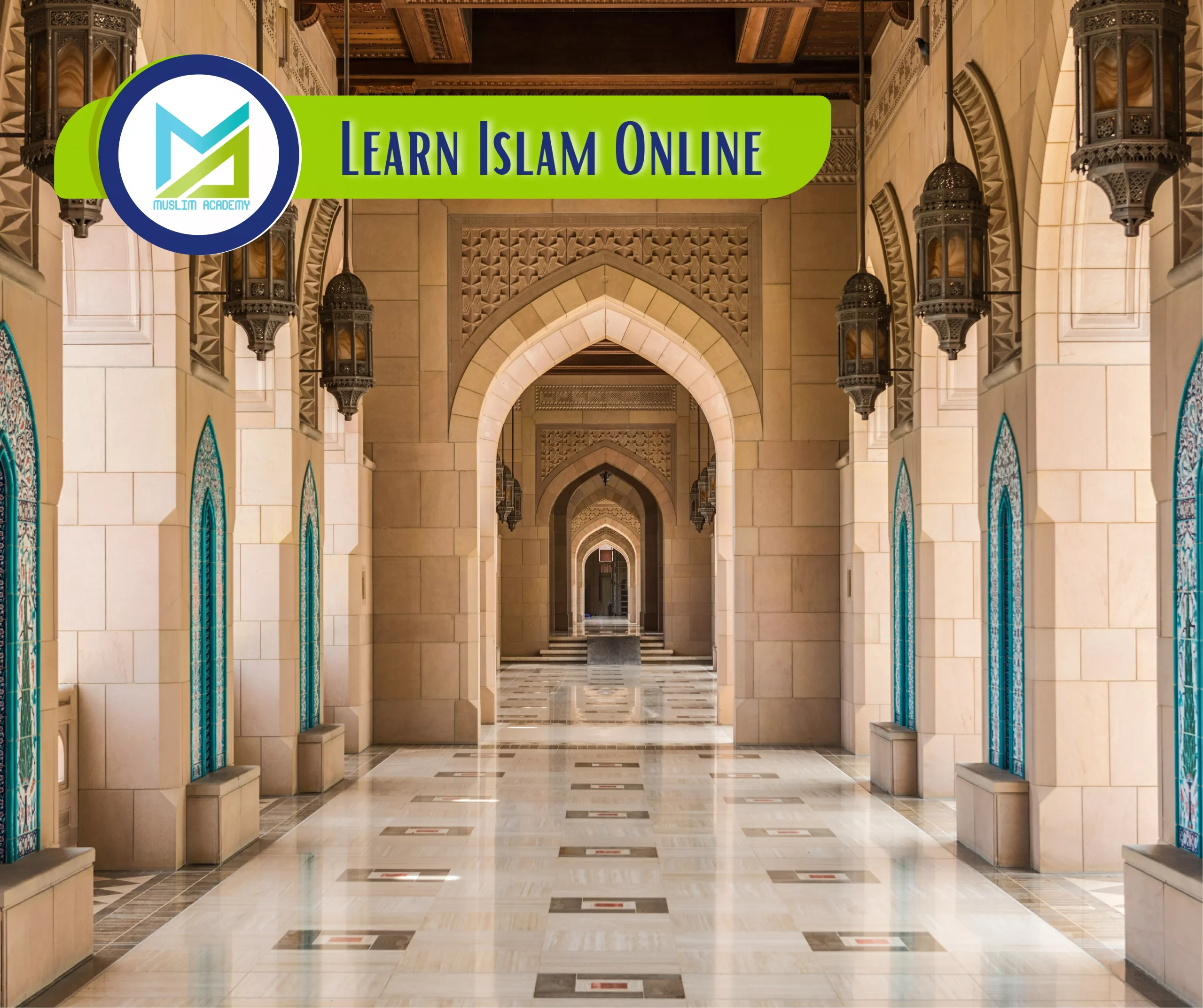Start Online Quran Classes with Muslim Academy
https://muslimacademy.net/index.php/free-trial/
The modern era has revolutionized how people access religious education, making it possible to Learn Islam Online with Muslim Academy from anywhere in the world. This digital transformation has broken down geographical barriers, time constraints, and accessibility limitations that once prevented many sincere seekers from gaining comprehensive Islamic knowledge. Today, millions of Muslims and non-Muslims alike utilize online platforms to deepen their understanding of Islamic teachings, principles, and practices.
The opportunity to Learn Islam Online with Muslim Academy represents a significant advancement in Islamic education, offering unprecedented flexibility and diversity in learning approaches. Students can now access authentic Islamic content from renowned scholars, participate in interactive courses, and engage with global Muslim communities without leaving their homes. This accessibility has particularly benefited women, working professionals, parents, and individuals living in areas with limited Islamic educational resources.
The Evolution of Islamic Education in the Digital Age
Traditional Islamic education has always emphasized the importance of seeking knowledge throughout one’s lifetime, with the Prophet Muhammad encouraging believers to pursue learning from cradle to grave. The digital revolution has expanded this traditional framework, creating new opportunities for those who choose to Learn Islam Online with Muslim Academy through various technological platforms and innovative teaching methods.
Online Islamic education builds upon centuries-old pedagogical traditions while incorporating modern educational technologies that enhance comprehension and retention. Interactive multimedia content, video lectures, online discussions, and digital libraries combine to create comprehensive learning experiences that rival and often exceed traditional classroom settings in terms of accessibility and resource availability.
The global nature of online education allows students to learn from distinguished Islamic scholars and institutions worldwide, regardless of their physical location. This democratization of knowledge ensures that quality Islamic education becomes available to sincere seekers everywhere, breaking down economic and social barriers that might otherwise prevent access to authentic religious instruction.
Comprehensive Islamic Knowledge Areas Available Online
Students who decide to Learn Islam Online with Muslim Academy can access virtually every aspect of Islamic knowledge through specialized platforms and structured courses. Quranic studies form the foundation of online Islamic education, offering courses in Arabic language, Quranic recitation, interpretation, and memorization techniques that help students develop deep connections with the sacred text.
Islamic jurisprudence courses provide practical guidance on religious obligations, ethical conduct, and proper implementation of Islamic principles in contemporary life. These programs address questions about prayer, fasting, pilgrimage, charity, business ethics, family relationships, and social interactions within Islamic frameworks.
Islamic history and biography courses explore the rich heritage of Muslim civilization, examining the lives of prophets, companions, scholars, and historical figures who shaped Islamic thought and practice. This knowledge provides context for understanding current Islamic practices while inspiring students through examples of righteousness and dedication.
Comparative religion studies help students understand Islam’s relationship with other faith traditions, enabling informed discussions about religious similarities and differences while strengthening confidence in Islamic beliefs through scholarly examination and intellectual exploration.
Interactive Learning Technologies and Methods
Modern platforms that enable students to Learn Islam Online with Muslim Academy utilize sophisticated educational technologies that create engaging and effective learning environments. Live streaming lectures allow real-time interaction between students and instructors, enabling immediate clarification of doubts and personalized guidance that mimics traditional teacher-student relationships.
Discussion forums and online communities provide spaces for peer learning, where students can share experiences, ask questions, and engage in meaningful discussions about Islamic topics. These interactions often lead to lasting friendships and study partnerships that support continued learning and spiritual growth.
Multimedia content, including videos, podcasts, interactive quizzes, and digital textbooks, accommodates different learning styles while making complex topics more accessible and interesting. Visual learners benefit from infographics and animated explanations, while auditory learners prefer podcast lectures and recorded recitations.
Mobile applications extend learning opportunities beyond formal study sessions, allowing students to access Islamic content during commutes, breaks, or other convenient moments throughout their daily routines. This flexibility helps maintain consistent engagement with Islamic learning despite busy schedules and competing priorities.

Quality Assessment and Authentic Sources
One of the primary concerns for those seeking to Learn Islam Online with Muslim Academy involves ensuring the authenticity and reliability of educational content and instructors. Reputable online Islamic education platforms maintain strict standards for instructor qualifications, requiring advanced degrees from recognized Islamic institutions and demonstrated expertise in their teaching areas.
Curriculum development involves collaboration between traditional scholars and educational specialists who ensure that online courses maintain academic rigor while utilizing effective digital teaching methods. This careful balance preserves the integrity of Islamic knowledge transmission while embracing beneficial technological innovations.
Student feedback systems and course evaluations help maintain quality standards by identifying areas for improvement and ensuring that educational objectives are being met effectively. Regular assessment of learning outcomes ensures that students are gaining genuine understanding rather than superficial familiarity with Islamic concepts.
Certification programs provide formal recognition of completed studies, with some institutions offering accredited degrees and diplomas that are recognized by Islamic organizations and academic institutions worldwide. These credentials can support career development in Islamic education, community leadership, or religious services.
Overcoming Common Online Learning Challenges
Students who choose to Learn Islam Online with Muslim Academy may encounter specific challenges that require strategic approaches and adaptive solutions. Technical difficulties, including internet connectivity issues and device limitations, can disrupt learning continuity and affect comprehension of complex topics requiring sustained attention and focus.
Time management becomes crucial when balancing online Islamic studies with work, family, and other responsibilities. Successful online students develop disciplined study schedules, create dedicated learning spaces, and establish clear boundaries that protect their educational time from competing distractions and obligations.
Motivation maintenance requires self-discipline and intrinsic commitment, as online learning environments lack the external accountability and peer pressure that characterize traditional classroom settings. Students must develop internal motivation systems and seek community support to sustain long-term engagement with their studies.
Language barriers may challenge students whose native language differs from the course instruction medium. However, many platforms now offer multilingual content and translation services that make Islamic education accessible to diverse global audiences while maintaining accuracy and authenticity.

Building Virtual Islamic Communities
The opportunity to Learn Islam Online with Muslim Academy extends beyond individual knowledge acquisition to include participation in vibrant virtual communities that provide social support, spiritual encouragement, and collaborative learning opportunities. Online study groups allow students from different countries and backgrounds to share perspectives, experiences, and insights that enrich everyone’s understanding.
Virtual mentorship programs connect new students with experienced learners or qualified instructors who provide personalized guidance, answer questions, and offer advice on spiritual development and practical implementation of Islamic teachings in daily life.
Social media integration enables students to share their learning journey, celebrate milestones, and inspire others to pursue Islamic education. These public commitments often provide additional motivation and accountability while contributing to broader community awareness about the importance of religious learning.
Online Islamic conferences, webinars, and special events create opportunities for students to hear from distinguished speakers, participate in important discussions, and stay current with developments in Islamic scholarship and contemporary issues affecting Muslim communities worldwide.
Practical Implementation and Daily Application
Effective programs that help students Learn Islam Online with Muslim Academy emphasize the practical application of learned principles rather than mere theoretical knowledge accumulation. Courses include guidance on implementing Islamic teachings in contemporary contexts, addressing real-world challenges that students face in their personal and professional lives.
Prayer instruction courses provide step-by-step guidance on proper prayer techniques, timing, and spiritual preparation, often including video demonstrations and interactive practice sessions that help students develop confidence and proficiency in this fundamental Islamic practice.
Financial ethics courses explore Islamic principles regarding money management,
business practices, and charitable giving, providing practical guidance for implementing
These teachings in modern economic contexts while maintaining religious integrity and social responsibility.
Family relationship courses address parenting, marriage,
and social interaction according to Islamic principles,
offering practical advice for building strong Muslim families and contributing positively to broader communities
while maintaining religious values and cultural identity.
Advanced Studies and Specialized Programs
Students who complete foundational courses and wish to continue
their journey to Learn Islam Online with Muslim Academy
can access advanced programs that prepare them for leadership roles,
teaching positions, or specialized service within Muslim communities.
These advanced courses require significant commitment and often
involve intensive study periods and comprehensive examinations.
Islamic law studies provide a detailed exploration of jurisprudential principles,
legal methodology, and contemporary application of Islamic legal frameworks in modern contexts.
These programs prepare students for advisory roles, legal consultation,
and community leadership positions requiring a sophisticated understanding of Islamic legal principles.
Quranic commentary courses offer an in-depth exploration of classical and contemporary interpretations of the Quran,
requiring advanced Arabic skills and comprehensive knowledge of Islamic history,
theology, and linguistics. Graduates often become qualified to teach
Quranic studies or lead community education programs.
Islamic counseling and chaplaincy programs prepare students
to provide spiritual guidance and support to community members facing personal challenges,
family difficulties, or spiritual crises.
These programs combine Islamic knowledge with counseling techniques and pastoral care skills.
Global Impact and Future Developments
The ability to Learn Islam Online with Muslim Academy
has created unprecedented opportunities for Islamic education
to reach previously underserved populations and contribute
to a greater understanding between Muslim and non-Muslim communities worldwide
de. Educational programs now serve students in remote areas,
developing countries and regions with limited Islamic educational infrastructure.
Interfaith dialogue programs utilize online platforms to facilitate respectful discussions between Muslims and people of other faiths,
promoting mutual understanding and addressing misconceptions that contribute to religious tension and social division.
Women’s Islamic education has particularly benefited from online accessibility,
As cultural restrictions or family responsibilities that might
prevent attendance at traditional institutions no longer
creates barriers to religious learning and spiritual development
nt.
Future developments in online Islamic education will likely include artificial intelligence tutoring systems,
virtual reality pilgrimage experiences and increasingly sophisticated assessment tools
that provide personalized learning paths adapted to individual student needs and learning styles.
Conclusion: Embracing the Digital Islamic Education Revolution
The opportunity to Learn Islam Online with Muslim Academy
represents a transformative development in Islamic education
that aligns perfectly with Islam’s emphasis on lifelong learning and the pursuit of knowledge.
These digital platforms have made authentic Islamic education more accessible than ever before,
enabling millions of students worldwide to deepen their faith,
expand their knowledge, and contribute meaningfully to their communities.
Success in online Islamic learning requires dedication,
discipline, and careful selection of quality educational resources.
But the rewards include comprehensive religious knowledge,
spiritual growth, and the ability to serve others through teaching and community leadership.
As technology continues to evolve, the opportunities to learn and share Islamic knowledge will only expand,
creating new possibilities for religious education and spiritual development.
The future of Islamic education lies in the thoughtful integration of traditional knowledge transmission methods
With innovative digital technologies that preserve authenticity while enhancing accessibility.
For those ready to embark on this journey,
The ability to Learn Islam Online with Muslim Academy offers unlimited opportunities for growth,
service, and contribution to the global Muslim community.
